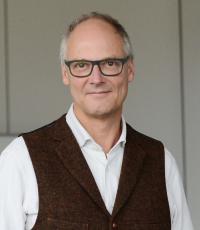Institute for Nursing Research, Gerontology and Ethics
Profile
The Institute for Nursing Research, Gerontology and Ethics is one of the research institutes of the university. It faces the challenges in the intersection of the science of age on the one hand and the science-based teachings of values on the other. In our days manifold ways of life and lifestyles, old age, but also multimorbidity which causes a higher need of support and professional care in the final years of one´s life are widley known attributes of the lifespan of old age.
At the same time values have been defined differently in our multifarious society and mutual responsibilities for people are reassigned constantly by each generation. The culture of helping changes between the priorities of the ways of funding and volunteering, the understanding of service in the social sector and the sophisticated lifestyles of families and social groups. Many ethical questions are devolped by this.
The Institute for Nursing Research, Gerontology and Ethics applies itself to these questions by its own and through cooperation arranged research projects and the publication of research results at public lectures, symposia and in the magazine „Zeitschrift für Gerontologie und Ethik“.
History of the Institute
In 2003 it was founded as an independent Institute with support association. It became an In-Institute of the Lutheran University of applied sciences Nuremberg by senate resolution in July 2009.
Different fields of work of the first few years, for example the qualification to a nursing auditor were relieved by others and extended. The current focus is on research projects and their public presentation for an interested common or professional audience.
Contact
Selection of Research Projects
Dementia-friendly commune
The Institute of Gerontology and Ethics supports communes in planning, establishing and modifiying offers for demented people and their dependents. Integrated into the initiative „Dementia-friendly commune Middle Frankonia“ of the dependent council e.V. Nuremberg and the geropsychiatric professional coordination (GeFa) of Middle Frankconia, which is supported by the Robert-Bosch-Foundation, and the district of Middle Franconia as well, community and urban district analyses are established, which can be the basis for further communal planning.
The following questions have priority:
- What partners, mediators, facilities offer programs for demented people and their dependents? What kind of programs are these?
- How is the collaboration between these partners, mediators and facilities arranged (network)?
- What options and resources of the actual offers can be identified for the organization/development/improvement?
Project manager: Prof. Dr. Christine Brendebach
Commune 2030
In view of the demographic change, civic commitment as an addition to established and professional geriatric care will become increasingly more important in the next few years. Also it plays a central role to the local authority districts by planning and controlling voluntary services. The Department of Gerontology and Ethics supervises communities and work groups by establishing as well as developing voluntary services. It also conducts demand and user analyses as well.
Project manager: Prof. Dr. Christine Brendebach
KidZ -Kids and Dementia
Children are faced with the issue of demential diseases as well: for example they see their sick grandparents, they immediately feel that their own parents are involved in caring for their parents or they experince the effects of dementia to the sick family member and their environment. The Institute of Gerontology and Ethics offers the following programs to children:
Designing of topical devices for kindergarten and schools
Counseling for parents, kindergarten teachers and educators
Multiplier’s training
Project manager: Prof. Dr. Christiene Brendebach
Human rights at retirement homes
A study about the realization of human rights at retirement homes, in cooperation with the Human Rights Office of Nuremberg, for the inquiry of possibly existing and by the nursing staff requested training requirements.
Eastern European home staff
This research project considers the change of the culture of helping within generations which is caused by families with care-dependent old family members who employ Eastern European home staff. How does a female Pole´s or Rumanian´s assistance affect the family cohesion in Germany? What kind of impact does this work have on these female´s families in their home country for example Poland and Rumania? What are the conditions for all involved parties? Are there limits and opportunities? This project embraces inquiries in Germany using the example of Bavaria and in families of origin of the Polish and Rumanian home staff.
Other projects
- Dementia and dying
- Nursing oasis
- Religiousness 66plus
- elderly-friendly hospital

